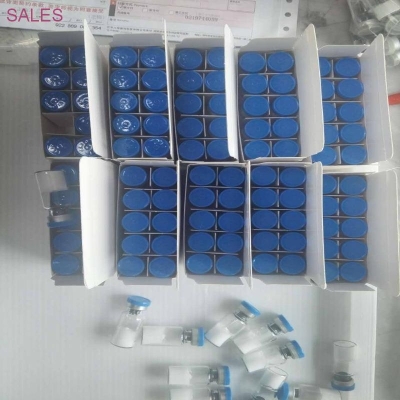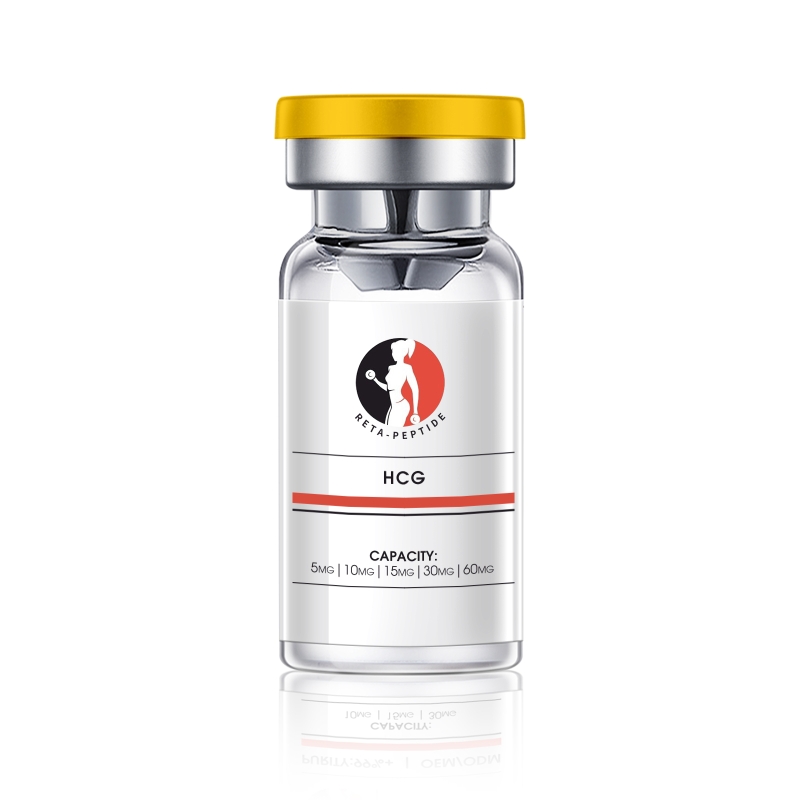In depth thinking | explore the market-oriented procurement mode under the supervision of the government (Part 2)
-
Last Update: 2019-04-04
-
Source: Internet
-
Author: User
Search more information of high quality chemicals, good prices and reliable suppliers, visit
www.echemi.com
In the first part, Xiaobao and you reviewed the GPO model in the United States and its typical pilot situation in China So, what can we learn from the GPO model? Is this model suitable for use in China? Under the current situation of all kinds of centralized purchase modes blooming everywhere, how should the centralized purchase system of drugs in China develop in the future? In the next part, Xiaobao will share some thoughts with you around these problems Since the national development and Reform Commission cancelled drug pricing, the payment standard for medical insurance has not been issued due to various factors Centralized purchase and negotiation have become the policy that has the greatest impact on drug prices in this period of time However, from the perspective of the affected areas, centralized procurement is the top priority From the recent "4 + 7" medical insurance volume procurement, it can be seen that only some varieties and pilot areas have caught the pharmaceutical industry by surprise However, although the effect of medical insurance volume purchase on price reduction is significant, it can benefit the public and reduce drug expenditure However, from the perspective of internal reaction, the centralized purchase mode with strong administrative color has a great impact on the drug price system, which may need further polishing and consideration to be better promoted In addition, not only drugs, but also medical devices and consumables that have been in the "safe zone" for many years may undergo such a baptism in the near future when the market profit of drugs is gradually adjusted to a reasonable level In this case, the attempts of Shanghai, Shenzhen and other places can be regarded as a positive way to find a way out, which can be said to be a precaution More local flavor is needed for GPO to land in China From the current pilot situation in China, the government can improve the weak bargaining power of individual hospitals to a certain extent and reduce the purchase cost by entrusting the specific purchase work within a certain range to the third-party intermediary GPO Although in the process of exploration, Shanghai and Shenzhen, the two pioneers of the reform pilot, have been troubled by the antitrust investigation of relevant departments, both platforms have actively cooperated in the rectification work, revised the procurement work regulations, basically dispelled the concerns of relevant departments in this regard, and have been promoting a new round of group procurement work in the follow-up For example, at the end of 2018, Shanghai released the "bidding announcement on the procurement of Shanghai class II vaccine group in 2019" on the procurement service website of Shanghai Pharmaceutical Group; when the vice governor of Guangdong Province presided over the on-site procurement meeting of the provincial promotion Pharmaceutical Group, he also proposed to "summarize and promote the procurement pilot experience of Shenzhen Pharmaceutical Group and comprehensively promote the procurement of Pharmaceutical Group" But in fact, it is not difficult to see that compared with the "original" GPO in the United States, the existing reference to GPO in China is still on the surface On the one hand, its main business covers only three basic aspects of "integration of procurement information", "price negotiation" and "supply and distribution management"; on the other hand, except that Guangdong Province is really led by the market organization (drug network), the rest are led or initiated by the local government So many people can't help but think that although the GPO pilot seems to have changed its face and varied, it still reveals a taste of centralized bidding and procurement by the health sector Xiao Bao believes that when we want to learn from a system, we should first consider whether the background environment of the system is consistent at any time and in any field There are great differences between China and the United States in the management system of hospitals and medical insurance, and the prefecture and city level overall planning of medical insurance in China determines that the drug procurement is mainly organized and implemented by provinces and cities Therefore, it is really difficult to copy the completely market-oriented purchasing behavior of the United States in our country We need to explore and design a "Chinese discount" and localized group purchasing mode based on our national conditions The five key points of centralized drug purchase in the future, although under the medical and health system and market environment of China, the centralized drug purchase still needs the leading of administrative force in a short period of time In any case, the key of GPO lies in "market-oriented competition" Even if it is limited to China's national conditions, it is necessary to straighten out the relationship between the government and the market in this process, so as to avoid the situation of "selling dog meat with sheep's head" Otherwise, it will return to the strange circle of "second bargaining" and "winning the bid" Therefore, Xiaobao believes that in the future, no matter which mode is adopted for centralized procurement of pharmaceutical products, the following aspects should be considered: first, make good use of the "invisible hand" of the market and explore the market-oriented mode under the supervision of the government More and more economic experts believe that with the continuous improvement of China's market economy, we should gradually transition from the past "government led, market vitality later" to the "government led, market led" model Looking back on the development history of the pharmaceutical industry, a series of problems, such as "winning the bid" and "bad money expelling good money" brought about by the excessive control of drug prices, also tell us that price should be the result of market competition, not the result of administrative power intervention However, the "market-oriented mode" does not mean laissez faire in the market Medicine is closely related to people's livelihood, and each link needs to be restricted by the government's regulatory policies In recent years, the drug exchange mode, GPO mode explored by the local government, and even the recent negotiation procurement and volume procurement led by the medical insurance bureau can be regarded as the market-oriented mode under the government control in essence, but the specific implementation forms are different, and the government control power is strong or weak In the future, no matter how medical reform is carried out, dealing with the relationship between "government" and "market" will be the primary problem that policy makers need to constantly think about Second, to allow a certain extent of "interest transfer" and mobilize the enthusiasm of hospitals to participate in centralized procurement In an ideal situation, the three parties involved in centralized procurement, namely, medical insurance, hospitals and enterprises, should maintain the situation of "tripartite confrontation" and restrict each other to achieve a balance However, in fact, for a long time in the past, the natural "control fee" attribute of medical insurance and its passive position in purchasing led to its common "opposite" between hospitals and enterprises, and the difficulty of controlling fee is self-evident "Benefit transfer" is a very effective way to establish an alliance between medical insurance and hospitals, that is, to allow the purchase price of hospital retention to reduce the reduced cost of medical insurance But this kind of "transfer" should be a reasonable transfer within a certain time and a certain range, only for the purpose of establishing a balanced transitional measure It needs medical insurance to keep up with the price changes and adjust dynamically, gradually reduce the "transfer" space, and avoid the birth of another form of drug-based care Third, strengthen the monitoring and collection of price information to lay the foundation for the formulation of medical insurance payment standards After the elimination of drug pricing, medical insurance payment standard has become one of the key work of medical reform In the absence of other effective price systems in China, the price data of centralized procurement in each province is undoubtedly the key reference for the formulation of payment standards And from the local pilot situation, the payment standard of medical insurance is basically linked to the bidding purchase, negotiation purchase price, and even linkage adjustment has become the norm Fourth, promote the "combined" centralized procurement mode to meet the needs of diversified procurement This is particularly important when exploring new procurement platforms such as GPOs The so-called "combination" can include two aspects: on the one hand, some hospitals may not be suitable to entrust all drug procurement (such as specialized hospitals), at this time, only some varieties of hospitals can be included in the scope of entrusted procurement, and then different hospital purchase orders can be merged; on the other hand, for enterprises with rich product lines and strong supply capacity, multiple varieties can be considered for packaging Price procurement, further improve procurement efficiency and reduce procurement costs Fifth, establish a good anti-monopoly awareness and promote the establishment of a normal market competition order Theoretically speaking, the more centralized the purchasing organization is, the more significant the transaction cost savings will be However, if the purchasing organization is too centralized, the monopoly "structural hole" (the only way for upstream and downstream enterprises to reach a transaction, i.e the centralized purchasing organization / platform) will occur, which will encroach on the interests of both parties GPO in the United States has appeared in this kind of problems, and the pilot projects in Shanghai and Shenzhen have also been investigated Therefore, if centralized procurement is put into commercial and profitable organizations, attention should be paid to avoid the market monopoly caused by "unique", which includes not only the procurement platform, but also the distribution agencies Conclusion although the rationality of the centralized mining system has been controversial for many years, the industry people have different opinions on it But today, no matter considering national conditions or learning from foreign experience, one thing can be basically clear: in the future, centralized procurement, carrying capacity and price negotiation will be the mainstream trend in the field of pharmaceutical procurement for quite a period of time, which is necessary for the benefit of the public and the sustainable development of medical insurance On the way to explore centralized procurement, any new thing, especially the reform involving the interests of all parties, will inevitably experience pain The same is true of GPO in China, which is still in its infancy There are many imperfections and controversies in the process of exploration However, it is undeniable that GPO is a new field worth trying for drug procurement, and how far and in what form this road can go in the future requires the voices of all parties and time.
This article is an English version of an article which is originally in the Chinese language on echemi.com and is provided for information purposes only.
This website makes no representation or warranty of any kind, either expressed or implied, as to the accuracy, completeness ownership or reliability of
the article or any translations thereof. If you have any concerns or complaints relating to the article, please send an email, providing a detailed
description of the concern or complaint, to
service@echemi.com. A staff member will contact you within 5 working days. Once verified, infringing content
will be removed immediately.







